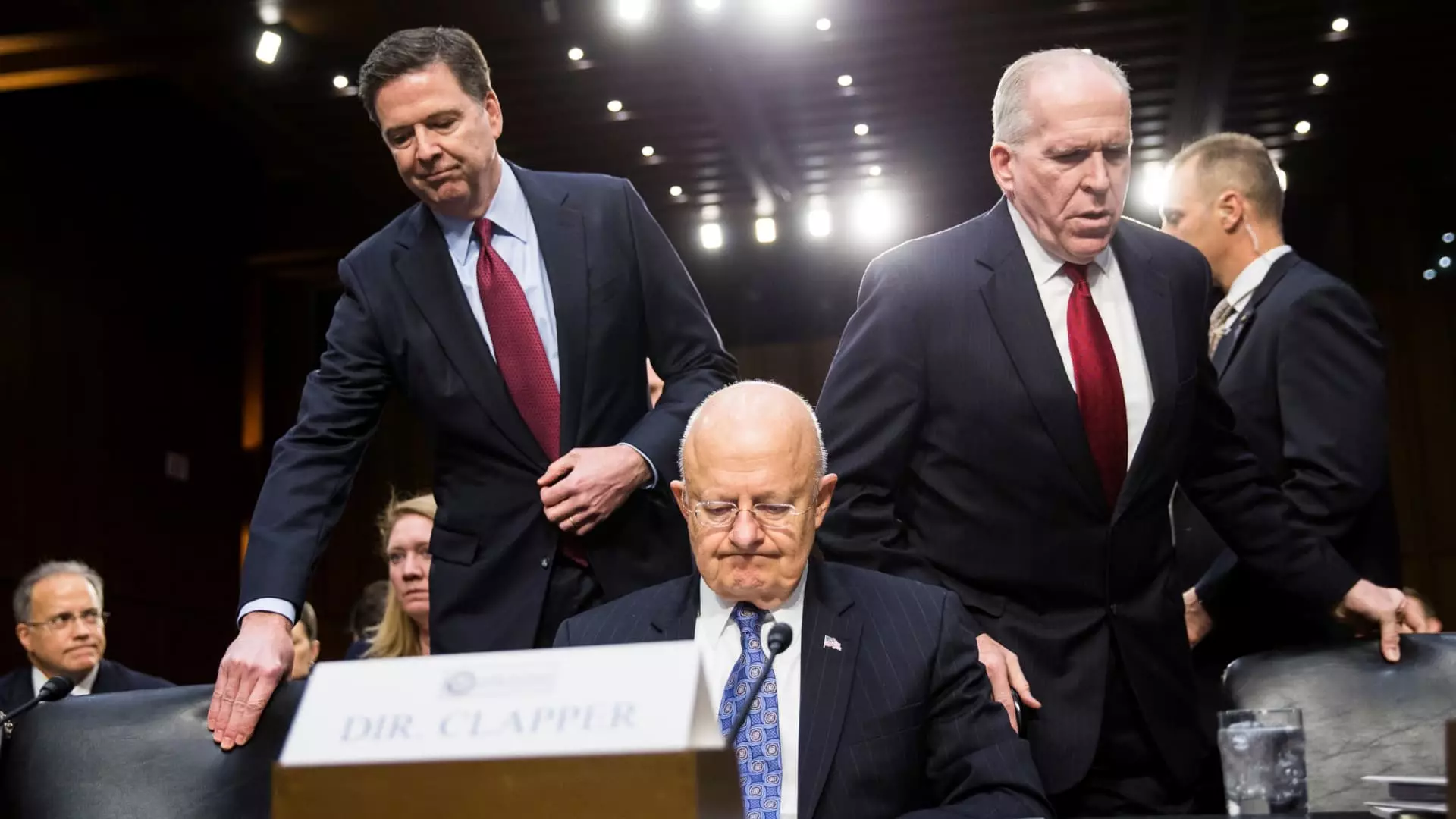In an era where political narratives are often crafted and manipulated, the recent actions by the Trump administration claiming criminal investigations against former intelligence leaders reveal more than just legal maneuvers—they expose a broader struggle over the soul of American justice. This isn’t merely about accountability; it’s a calculated move to undermine institutions and reframe targeted figures as villains for political gain. Such tactics threaten the foundational principle of an impartial justice system and threaten to erode public trust in the very agencies meant to safeguard democracy.
The targeting of figures like John Brennan and James Comey, both of whom played pivotal roles during a contentious political period, illustrates a clear pattern. Instead of exercising consistent, unbiased oversight, the current approach appears to be weaponizing the legal system against perceived political foes. While investigations are a legitimate part of justice, their context and intent, especially when shrouded in ambiguity, raise questions about fairness, transparency, and true justice versus political retribution. It’s critical to scrutinize whether these probes serve the legal interest of justice or are instead tools for partisan suppression, aiming to rewrite history rather than uncover truth.
The Erosion of Institutional Integrity
This aggressive posture towards former officials signals a dangerous shift in how law enforcement and intelligence agencies are perceived. Historically, institutions like the FBI and CIA were expected to operate independently of political influence, guided by the rule of law and national security imperatives. However, recent developments suggest that these institutions are increasingly becoming pawns in political games, especially when investigations are launched based on internal referrals driven by partisan politics.
The continued focus on figures involved in scrutinizing Russia’s interference in the 2016 election and the handling of the Steele Dossier reveals a troubling tendency: to relitigate past controversies in ways that seem less about justice and more about political vengeance. The fact that high-profile investigations have not resulted in charges or concrete proof of wrongdoing indicates that these efforts may be more about maintaining narratives than uncovering actual misconduct. It’s a disturbing trend that risks delegitimizing the investigative process, undermining the public’s faith in justice, and risking turning law enforcement into a tool for suppression rather than fairness.
The Political Cascade and Its Consequences
While attempts to hold leaders accountable are vital, what we are witnessing is a cascade of politically motivated actions that could destabilize democratic institutions. The firing of officials, the establishment of task forces like the so-called “Weaponization Working Group,” and the pardoning of political supporters on the first day of presidency reveal a clear pattern: a preemptive effort to shield allies and punish perceived foes. This approach fundamentally conflicts with the principles of justice and fair play.
The use of internal reviews, grand jury indictments, and referrals—which often lack concrete charges—serves as a smokescreen to create a narrative of corruption without substantive evidence. It fosters a climate of suspicion and hostility that hampers cooperation among agencies tasked with national security. Moreover, it fuels partisan division, inviting citizens to view law enforcement as a politically biased tool rather than an impartial guardian of the law.
By persistently targeting figures with complex, ambiguous motives, the administration demonstrates a reckless disregard for the integrity of justice. It prioritizes political expediency over adherence to legal standards, risking long-term damage not only to individual reputations but also to America’s credibility as a nation governed by laws, not whims. This politicization fosters cynicism and disillusionment among the public, ultimately weakening the very foundations of democracy that such institutions are designed to uphold.


Leave a Reply